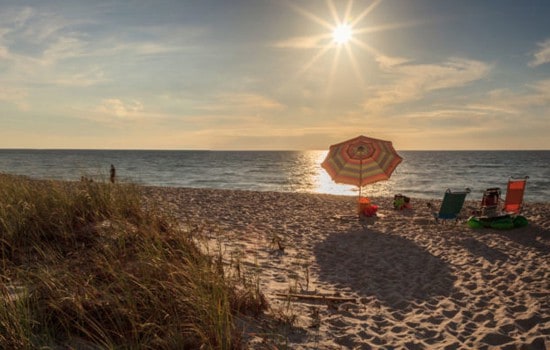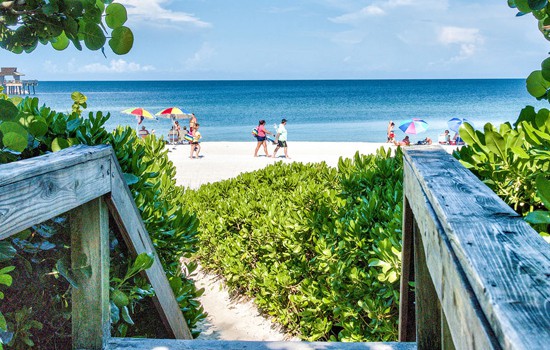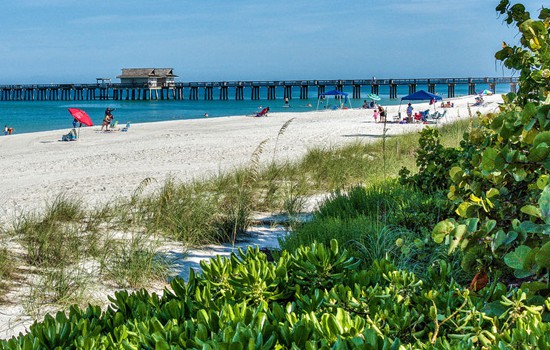Alligators are part of life down here in Florida. But that little, primeval knot you get in your stomach when you encounter one (or several) never gets old. These latter-day dinosaurs are fascinating creatures, and it’s no wonder they’re mascots of the state’s flagship university, the University of Florida.
You don’t necessarily have to walk on the wild side to view a gator. These critters are often found on the golf course or in neighborhood – really, anywhere close to fresh or even brackish water.
Check out this alligator fact:
The Florida Fish and Wildlife Conservation Commission (FWC) estimates some 1.3 million alligators live in the wild here in Florida. Down here in the coastal area of South Florida, you might even encounter an American crocodile. Current estimates are between 1,500 and 2,000 crocodiles in the state, not including hatchlings, says FWC. The crocodile is still listed by the State of Florida as endangered.
Both species have coexisted with people for centuries. They tend to shy away from humans, but don’t bank on it. It’s wise to keep a distance of 20 feet, since either apex predator can lunge about 6 feet from a resting position. They’re deadly quick too, if pressed, and that running zigzag thing to escape an aggravated gator isn’t proven.
The FWC recommends this:
If you do find yourself in the extremely unlikely position of avoiding a lunging alligator, you should run in a straight line away from the alligator and its habitat, which is where the alligator will most likely retreat to. Regardless of how fast alligators can run, you should never approach an alligator that is on land.
Where to Safely See Alligators
Alligator handling shows:
No need to go all “Swamp People” to get a close look at the state icon. We suggest binoculars, or head to the Naples Zoo at Caribbean Gardens where you can observe alligators in a natural environment. The zoo also offers entertaining, educational programs, but contact the zoo for details. Currently, restorations on the banks of Alligator Bay are limiting feeding shows to the public.
Alligators in the wild:
For a good chance to see an alligator in the wild, you could take the boardwalk that winds through pristine Audubon Corkscrew Swamp Sanctuary 30 miles northeast of Naples or book an airboat tour with one of about 8 outfitters in Everglades City, the gateway to Everglades National Park about 35 miles south of Naples. Everglades City is also where you can find alligator handling shows. (Not for the faint of heart.)
Where to eat alligator:
For those wishing to get in the first bite, head to one of many local restaurants and grab a gator tail. To some, yes, it tastes like chicken (more like a rubbery chicken). Sometimes, depending on the source, it’s more like a mild fish flavor. You’ll usually find it deep fried, sometimes Cajun spiced. Pair it with a remoulade sauce and an ice, cold brewski, and you’re good to go. One local spot to get your gator is Cracklin Jack’s in Naples, or if you want to get closer to the source, head down to Everglades City and hit City Seafood. It’s a quirky, laid-back place on the water that loves its deep fryer.
Expert Alligator Safety Tips
Alligator injuries are not all that common, but it pays to have some common sense when you’re out and about Southwest Florida. Here are a few more expert FWC safety tips:
- Alligators love doggie treats. Keep pets away from the water.
- Be especially cautious around fresh water (and brackish, remember?) at dawn, at dusk, and, of course, at night. These are the times of day alligators are most active.
- When paddling, keep hands and feet inside the boat. Be cautious and aware when entering or leaving the water.
- If fishing from a canoe or kayak, be careful when pulling fish from the water. Don’t keep fish on a stringer in the water. Don’t throw fish scraps in the water while cleaning fish, even on shore.
- Be aware. Inflatable kayaks are also deflatable.
- Bang sticks are legal in Florida to carry for self defense against alligators (and sharks) or for taking alligators attached to a restraining line with the proper licenses and permits, FWC regulations state. Be aware if you kill an alligator, even though it’s in self defense, you will be investigated and charged if you were not in imminent peril, FWC authorities say. Consult the FWC website for details.
If you’re stressed about alligators in the wild, don’t be. Just be aware. By and large, if you don’t bother them, they won’t bother you. So come check them out!









